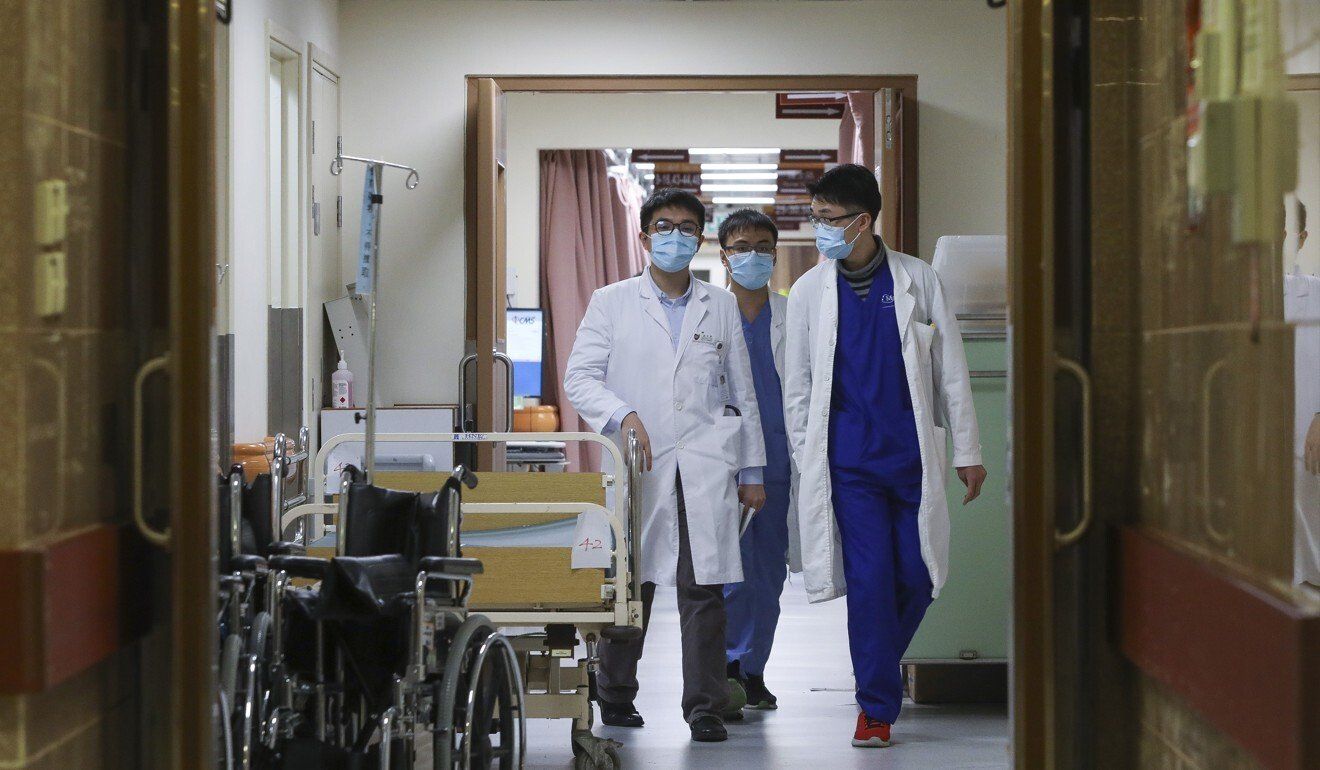With the Covid-19 epidemic still fluctuating and medical staff morale fragile, the government has made a bold step with a proposal to bring in more overseas-qualified medical practitioners.
Medical workers have been instrumental in the city’s battle against the Covid-19 epidemic. But when it comes to fighting inroads by foreign counterparts into their exclusive and lucrative profession, they are just as combative.
Even in times of a deepening health crisis and chronic manpower shortage in public hospitals, resistance to bringing in overseas qualified doctors remains strong, as reflected in the reaction to a renewed attempt by the government to swing the door wider. The response does nothing for the image of our medical heroes and the city’s interest.
The proposal enables Hong Kong permanent residents trained by recognised medical schools overseas to return and practise without an exam, after they have worked in public health care institutions for five years and have obtained specialist qualifications.
Whether the new pathway can attract enough talents remains to be seen. But with a new committee set up to identify qualified medical schools, initially capped at 100, quantity and quality should not be an issue.
 Doctors working at the ward of Queen Elizabeth Hospital in Kowloon.
Doctors working at the ward of Queen Elizabeth Hospital in Kowloon.
According to a government manpower study, the shortfall of public doctors has surged to 660 in recent years, rising further to 960 by 2040. Regrettably, previous attempts to open up the overly protectionist registration system did not go far enough. Currently, there are some 120 overseas-trained doctors under a limited registration scheme catered for public health institutions. There is a strong case to reform further.
Doctors’ groups said the move would open the floodgate on doctors of varying quality, adding that the public health sector would still be overloaded when doctors move to the private sector. But the concerns point to the needs of stronger safeguards rather than outright opposition.
The proposed mechanism for recognition and control period could be further discussed when the amendment bill is tabled for the Legislative Council in the second quarter of this year.
With the epidemic still fluctuating and medical staff morale fragile, the government has made a bold step in broaching a sensitive but essential revamp. While it is imperative for officials to better address issues of concerns and foster consensus on the way forward, the industry must realise that a closed shop is no longer an option.















